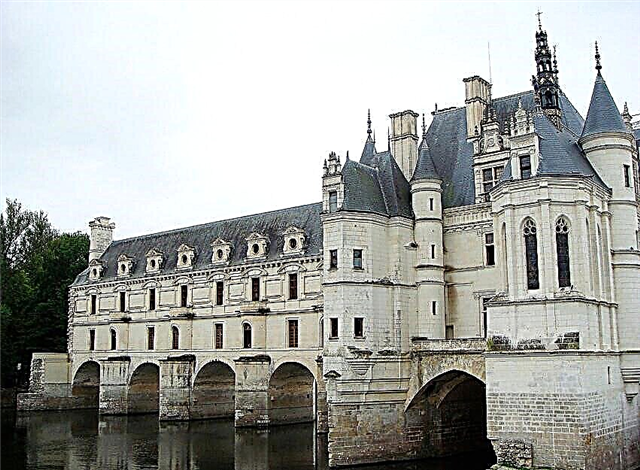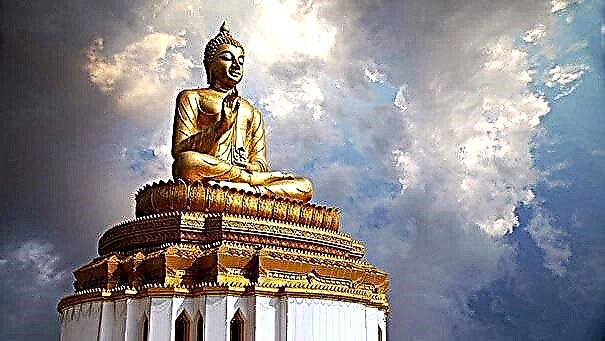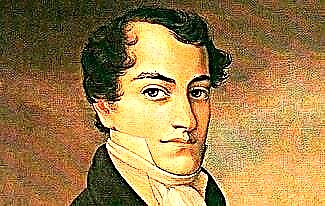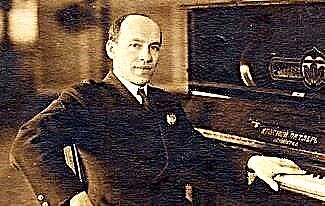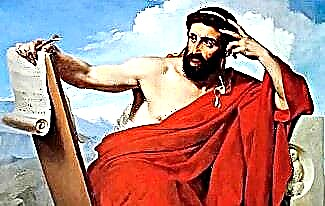Benedict Spinoza (real name Baruch Spinoza; 1632-1677) - Dutch rationalist philosopher and naturalist of Jewish origin, one of the brightest philosophers of modern times.
There are many interesting facts in the biography of Spinoza, which we will talk about in this article.
So, before you is a short biography of Benedict Spinoza.

Spinoza's biography
Benedict Spinoza was born on November 24, 1632 in Amsterdam. He grew up and was brought up in a family that has nothing to do with scientific activity.
His father, Gabriel Alvarez, was a successful fruit merchant, and his mother, Hannah Deborah de Spinoza, was involved in the household and raising five children.
Childhood and youth
The first tragedy in the biography of Spinoza occurred at the age of 6, when his mother passed away. The woman died from progressive tuberculosis.
As a child, the boy went to a religious school, where he studied Hebrew, Jewish theology, oratory and other sciences. Over time, he mastered Latin, Spanish and Portuguese, and also spoke some French and Italian.
At that time, Benedict Spinoza was fond of researching the works of ancient, Arab and Jewish philosophers. After the death of his father in 1654, he and his brother Gabriel continued to develop the family business. At the same time, he adopts the ideas of local Protestants, and essentially abandons the teachings of Judaism.
This led to the fact that Spinoza was accused of heresy and excommunicated from the Jewish community. After that, the guy decided to sell his part of the family business to his brother. Striving for knowledge, he became a student at a private Jesuit college.
Here Benedict became even more deeply interested in Greek and medieval philosophy, improved his knowledge of Latin, and also learned to draw and polish optical glasses. He spoke Hebrew so well that it allowed him to teach Hebrew to students.
It is worth noting that the philosophy of Rene Descartes had a particular influence on Spinoza's worldview. In the late 1650s, he founded a circle of thinkers, which radically changed his biography.
According to authorities, the man began to pose a threat to piety and ethics. As a result, he was expelled from Amsterdam for his connection with Protestants and rationalistic views.
Philosophy
In order to protect himself as much as possible from society and freely engage in philosophy, Benedict Spinoza settled in the south of the country. Here he wrote a work called "A Treatise on the Improvement of the Mind."

Later, the thinker became the author of his main work - "Ethics", which revealed the basic concept of his philosophical views. Spinoza built metaphysics by analogy with logic, which led to the following:
- assigning the alphabet (finding fundamental concepts);
- formulation of logical axioms;
- derivation of any theorems by means of logical inferences.
Such a sequence helped to come to the correct conclusions, if the axioms were true. In subsequent works, Benedict continued to develop his ideas, the main of which was the concept of man's knowledge of his own nature. This also required resorting to logic and metaphysics.
By metaphysics Spinoza meant an infinite substance that caused itself. In turn, under the substance is meant that "exists by itself and is represented through itself." In addition, substance is both “nature” and “god”, which means that it should be understood as everything that exists.
According to the views of Benedict Spinoza, "God" is not a person. Substance is immeasurable, indivisible and eternal, and also acts as nature in the general sense of this term. Any thing (animal, wood, water, stone) is only a particle of a substance.
As a consequence, Spinoza's "Ethics" gave rise to the doctrine that God and nature exist separately from each other. Substance contains an infinite number of attributes (of what constitutes its essence), but only 2 of them are known to man - extension and thinking.
The philosopher saw the ideal of science in mathematics (geometry). Happiness lies in the knowledge and peace that comes from the contemplation of God. A person whose body is endowed with affects is able to achieve harmony and become happy, guided by reason, logic, laws, desires and intuition.

In 1670 Spinoza published The Theological-Political Treatise, where he defended the freedom of scientific-critical research of the Bible and traditions. For mixing concepts from various fields of knowledge, he was criticized by his contemporaries and his followers.
Some biographers and colleagues of Benedict traced in his views sympathy for Kabbalah and the occult. Nevertheless, the thoughts of the Dutchman were very popular in Europe, including Russia. An interesting fact is that every new work of his was published in Russia.
Personal life
According to the surviving information, Spinoza was little interested in his personal life. It is believed that he never married or had children. He led an ascetic lifestyle, earning a living by grinding lenses and receiving material support from friends and like-minded people.
Death
Benedict Spinoza died on February 21, 1677 at the age of 44. The cause of his death was tuberculosis, which has plagued him for the past 20 years. The disease has progressed due to inhalation of dust during grinding of optical glasses and smoking tobacco, which was previously considered a remedy.
The philosopher was buried in a common grave, and all his property and letters were destroyed. The miraculously survived works were published without the name of the author.


